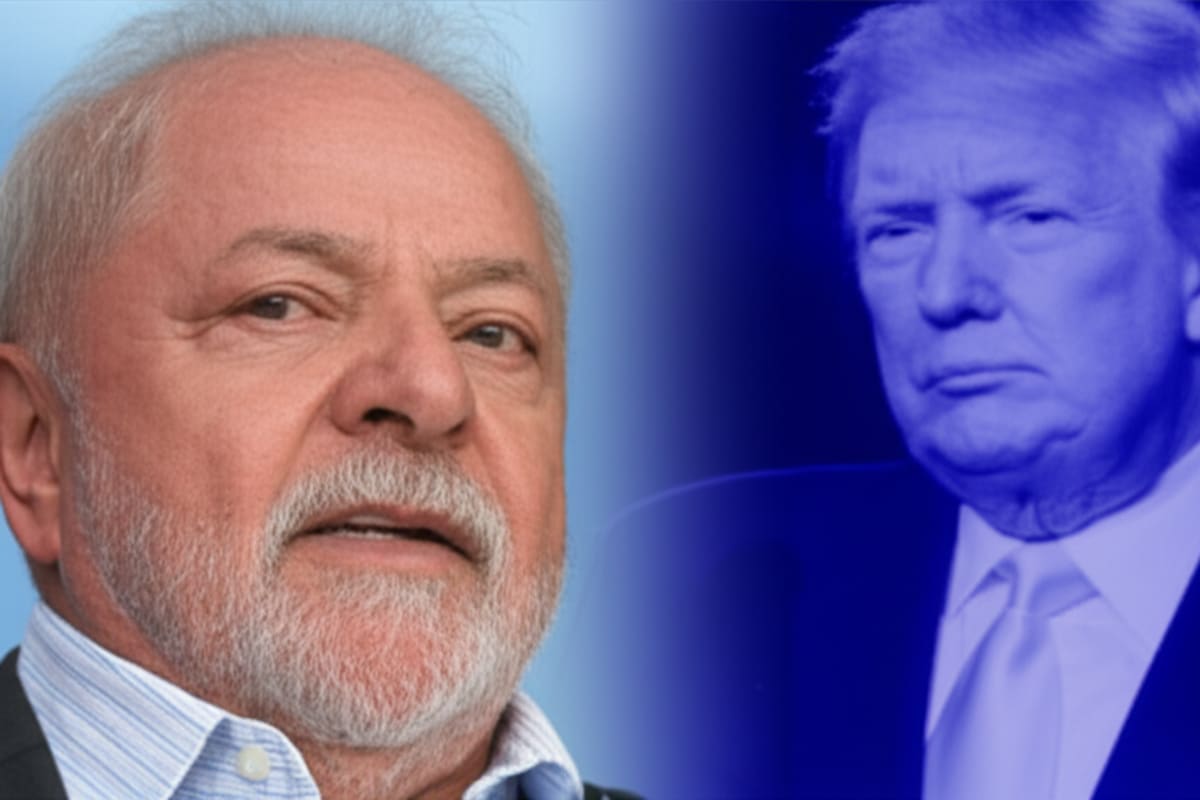Lula Denies Trump Ties: 'He's Not World Emperor'

In a move signaling a distinct departure from past administrations, Brazil's President Luiz Inácio Lula da Silva unequivocally denied any association with former US President Donald Trump during an exclusive interview with the BBC on September 17th, 2025
Background
"Trump is not the emperor of the world," Lula stated, a comment laden with historical and political significance given the complex, and at times strained, relationship between Brazil and the United States, particularly during the Trump era
This assertion, broadcast globally, underscores a deliberate shift in Brazil's foreign policy
Lula's Rejection: A Symbol of Ideological Divergence
The BBC interview, conducted against a backdrop of escalating geopolitical tensions and the reshaping of global alliances, clearly demonstrates Lula's commitment to independent foreign policy decision-making
His dismissal of Trump's influence signifies a rejection of the populist and nationalist rhetoric that defined the Trump presidency – a stance likely to be welcomed by numerous Latin American nations wary of unilateral US actions and protectionist trade policies
Lula's declaration isn't merely a personal slight; it embodies a profound ideological gap
His emphasis on multilateralism, international cooperation, and engagement with international organizations stands in stark contrast to Trump's "America First" policy, which frequently marginalized the concerns of allies and trading partners, leading to trade wars and diplomatic friction
Relevance for Southeast Asia
For readers in Southeast Asia, Lula's statement carries particular weight.
The region has historically navigated a precarious balance in its relationships with the US and China, striving to maintain economic and political autonomy
Trump's unpredictable trade policies, withdrawal from international agreements like the Trans-Pacific Partnership (TPP), and questioning of long-standing alliances created significant uncertainty within the region, forcing nations to reassess their strategic positions
Lula's assertion of independence from Trump's influence could be viewed favorably by Southeast Asian nations seeking to strengthen ties with Brazil and Latin America as alternative partners
This could potentially foster increased economic and political cooperation, providing avenues for diversification and reduced reliance on traditional power blocs
Brazil's growing economic influence and commitment to South-South cooperation resonate with many Southeast Asian nations looking for new opportunities
Domestic Implications and Strategic Positioning
Furthermore, Lula's comments must be considered within the context of Brazil's domestic political landscape.
His administration faces considerable challenges, including persistent economic instability, income inequality, and social divisions
By adopting a firm and independent stance against a polarizing figure like Trump, Lula may be attempting to consolidate domestic support, particularly among leftist and centrist voters, and project an image of strength and national sovereignty on the international stage
This strategy could also serve to appeal to a broader international audience, positioning Brazil as a responsible global leader willing to challenge dominant narratives and advocate for a more equitable world order
A Balanced Perspective
However, it's crucial to adopt a balanced perspective.
While Lula's rejection of Trump may resonate with many within Brazil and internationally, it also carries potential risks
Maintaining a constructive relationship with the United States, regardless of the political leadership, remains vital for Brazil's economic and strategic interests
The US is a major trading partner and a key player in global security
A complete severance of ties, even with a specific political figure, could have unforeseen negative consequences for trade, investment, and diplomatic cooperation
This nuanced situation necessitates careful observation to accurately assess the long-term impacts of Lula's declaration on Brazil's international relations and its ability to navigate the complex landscape of global politics
Shifting Global Dynamics and Multipolarity
The BBC interview offers a glimpse into the evolving dynamics of global power.
Lula's statement is not merely a personal opinion; it reflects a broader trend towards multipolarity and the increasing assertiveness of emerging global powers
Countries like Brazil, India, and Indonesia are seeking to play a more prominent role in shaping the international agenda
His unambiguous rejection of Trump signals a potential recalibration of alliances and a move towards a more independent and less predictable international landscape, impacting relationships between countries across the globe, including those in Southeast Asia
Broader Implications
In conclusion, Lula's dismissal of any relationship with Trump represents a deliberate political statement with far-reaching implications for Brazil's foreign policy and the broader geopolitical landscape
The statement signals a potential move away from the unilateralism and protectionism of the Trump era and towards a more multipolar world order, a shift that will undoubtedly continue to shape international relations in the years to come
The impact on Southeast Asia, a region meticulously balancing its relationships with major global powers, remains to be seen, but Lula's decisive stance is sure to influence the ongoing realignment of global alliances
Key insights:
- Lula's clear rejection of any ties with Trump signals a significant shift in Brazil's foreign policy approach.
- This move resonates with several Southeast Asian nations who experienced uncertainty and concern during the Trump administration.
- Domestically, Lula's actions may aim to bolster support and project an image of strength internationally.
Contextual analysis:
- Lula's statement reflects a broader trend of multipolarity and the rise of emerging global powers.
- It occurs at a time of significant geopolitical shifts and readjustments in global power dynamics.
